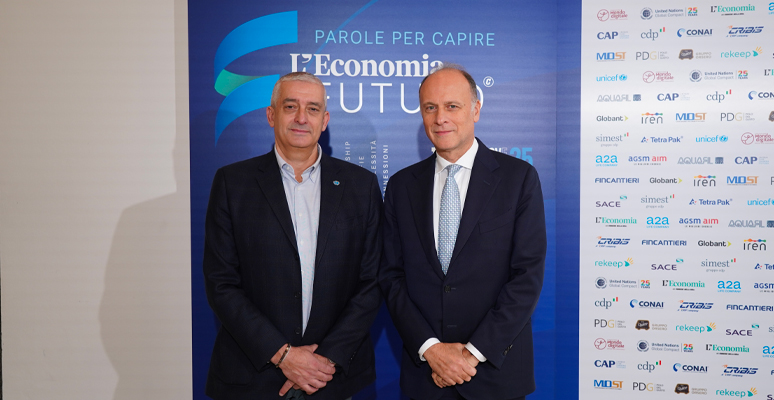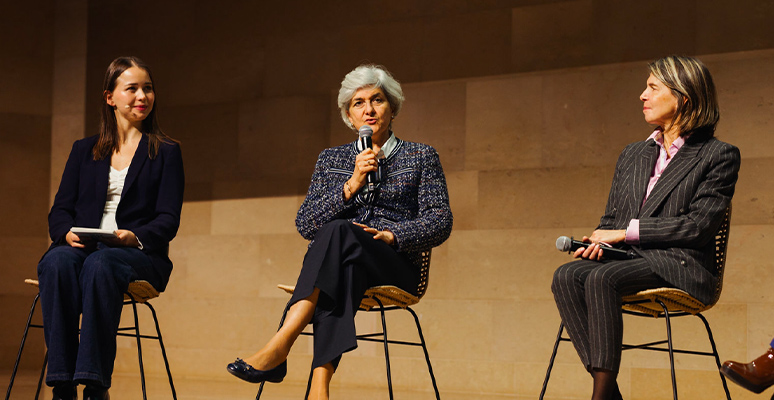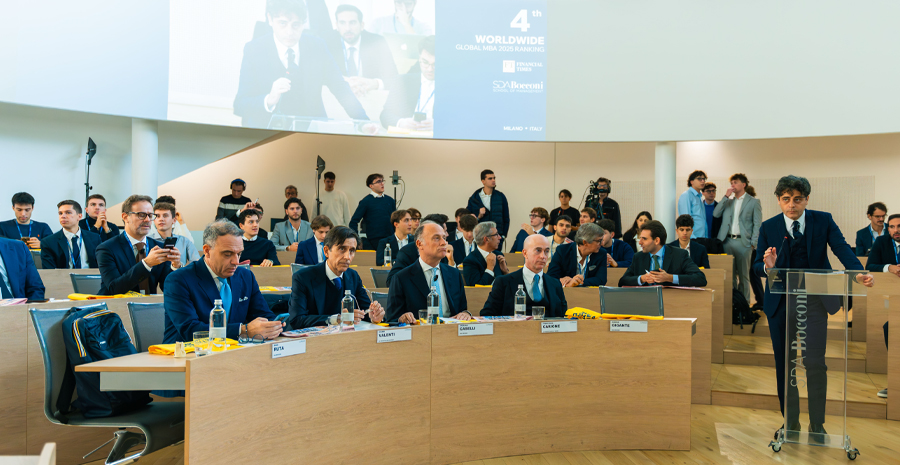Driven by the future. Leadership according to Schot
If a meeting about leadership and innovation must “aim high”, the Leadership Series one held with Bram Schot and the participants in SDA Bocconi’s Full-Time MBA was indeed close to a lectio magistralis. The former CEO of Audi, now an independent board member at Shell and Associate Professor of Practice in Corporate Strategy at SDA Bocconi, approached many of the “chief systems” of our time with a managerial rather than academic communication style: from complexity to sustainability, from organizational strategies to the personal qualities needed to lead and not be subjected to change. Precisely what leadership is all about.
The first, and perhaps most urgent, topic is that of change, or rather – as Schot points out, distinguishing between the two concepts – transformation. A radical paradigm shift is going on in the market and in society: “Today competition is between concepts, no longer between products or services.” Technology is a big part of this transformation process, of course – “The gap between what can be imagined and what can be accomplished has never been smaller.” But it remains an instrument behind which new thinking must develop: “We can work backwards from our imagination of the future, rather than forward from our past. Heritage is no longer our destiny.”
Innovation is the direct result of this premise. “Necessity is the mother of invention. But invention is not innovation,” he continued. “Innovations are inventions that are brought to market”. Innovation in these terms is closely related to competitiveness. Here Schot invited managers to ask themselves “brutal questions”: Are we a benchmark for competitors? What dictates our actions: competition or our view of the future? Is our idea of the future different from our competitors’? “It is vital to face facts: if you answered ‘no’ to several of these questions, you might be in serious trouble.” We need to move “from best practices to next practices”.
It is no longer possible to talk about the future without speaking of sustainability, which is a very sensitive point for a top manager who has been working in the automotive and energy sector for years. Schot tackled the topic in a “open-minded” and pragmatic way, acknowledging all the issues related to the green transition – first and foremost the fact that consumers resist changing their habits and lifestyle – but knowing it is the only possible way forward. “We have to create a sense of urgency in our companies: despite the fact that margins suffer, we need to shift our target in order to do good for the planet. Starting from the board room”. Since the industrial sector and the markets can and should drive this transition, Schot’s hope is also a political one: “Governments should not subsidize new energies but compensate the companies that do the transition for their losses, so that they can stop worrying about the fading out of the old business model and think about the new.”
Leadership, the main topic of the meeting, was just a short step away. “I don’t believe too much in changing people, it is more about charging people”, Schot said, in his almost aphoristic way. Here is what you should ask your people: Where is the future? What can you do? Where is your added value? In a world where almost everything is replicable, the secret of success for a firm and its leadership is having the right people and skills, the right culture and execution capabilities.
Schot then offered a sort of handbook for managers based on his personal experience: “Put the best people on possibilities, not on problems,” “Pay people not for doing their best but for the results they bring,” “Give everybody a voice, so that you get the info you need to decide. But nor everybody a vote.” Leaders must also know how to work on themselves. “You are never a prisoner of the situation; you can make you own choices. Have courage, don’t talk too much, do things” – and must be prepared to stick their necks out by stimulating critical thinking – “Feedback is crucial; and you get the feedback you deserve: you need to organize your own feedback, especially when you go high up the ranks. And make yourself accessible across the organization, spend time with your people from every level. There’s nothing off limits to discuss.”
What emerges is an idea, and a practice, of leadership that is both visionary and concrete, which Bram Schot summarized in a sort of headline for his speech – “Dream longer than the night is long, but dream with a deadline and reshape and lead the revolution” – against the background of a caterpillar that becomes a butterfly.
SDA Bocconi School of Management
SDA Bocconi with UNICEF and Corriere della ...

Regenerating nature can save 50% of the ...

Football Business Forum 2025



